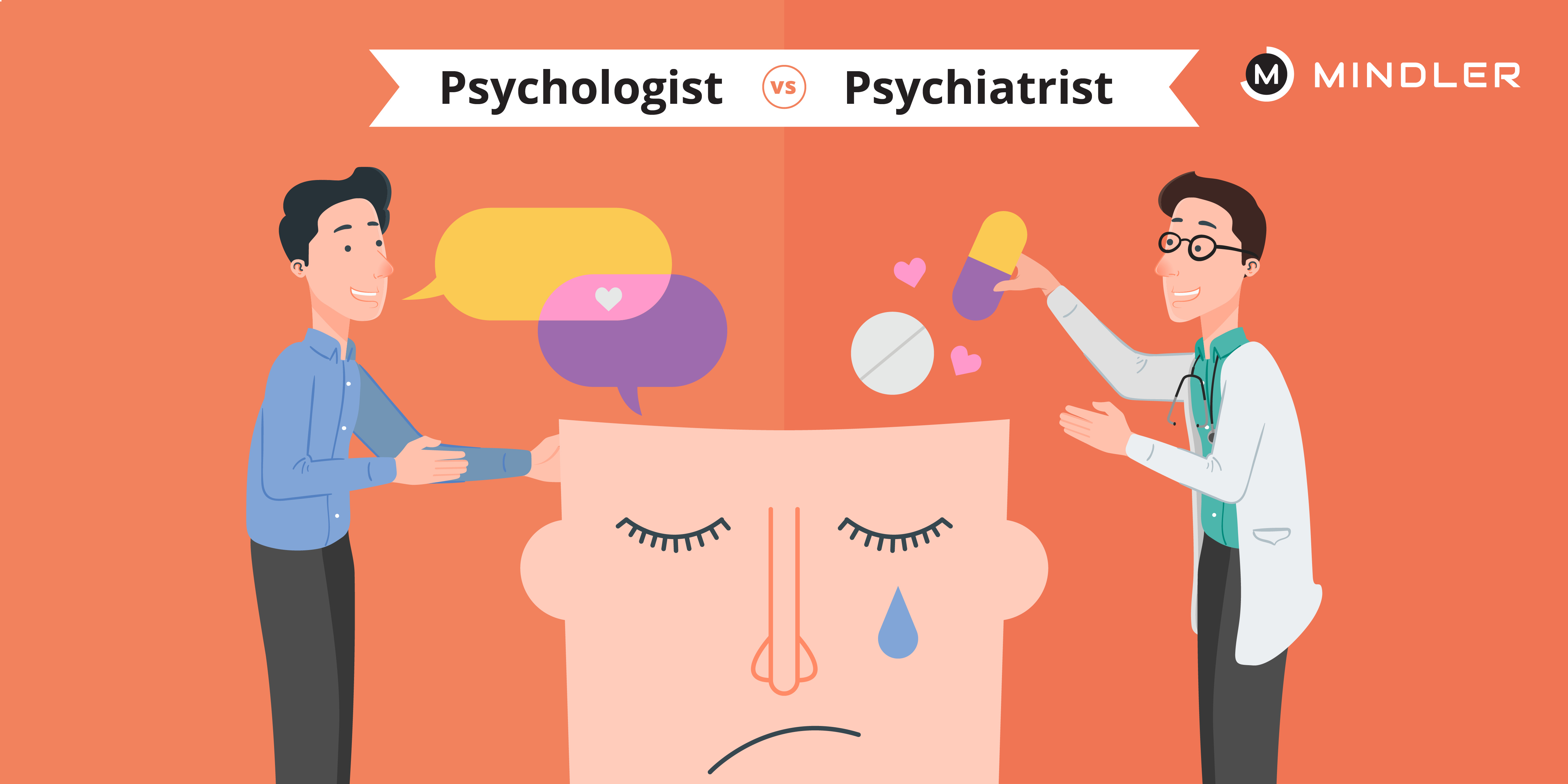Psych Therapy: A Comprehensive Overview to Methods and Outcomes

Cognitive-Behavioral Therapy
Cognitive-Behavioral Treatment (CBT) is a commonly made use of psychotherapeutic approach that focuses on recognizing and modifying inefficient reasoning and behavior patterns. Created in the 1960s by Aaron T. Beck, CBT combines cognitive and behavioral concepts to address different psychological wellness problems, consisting of depression, stress and anxiety, and stress-related problems.
CBT is identified by its structured, goal-oriented nature. Therapy typically entails a joint process between the specialist and client, where specific troubles are determined, and practical approaches are created to address them. Strategies such as cognitive restructuring, direct exposure therapy, and skill-building workouts are commonly used. Cognitive restructuring includes challenging and modifying negative idea patterns, while exposure treatment aims to lower worry and anxiety with gradual exposure to been afraid circumstances or things.
Evidence-based research supports the effectiveness of CBT for a large range of mental problems - Best Psychologist in Delhi. Its focus on skill acquisition and self-help methods encourages customers to continue progress separately after treatment ends. The flexibility and effectiveness of CBT have made it a foundation in contemporary psychotherapeutic method
Psychodynamic Strategies
Rooted in the very early concepts of Sigmund Freud, psychodynamic strategies focus on exploring the unconscious mind and its influence on behavior and feelings. These methods aim to uncover covert thoughts and feelings that might be driving maladaptive actions and emotional distress. Central to this strategy is the idea of internal problem, frequently coming from unsolved past experiences, particularly those from childhood.
Therapists utilizing psychodynamic strategies use numerous crucial techniques, including free organization, where people are urged to speak freely to reveal subconscious material, and dream evaluation, which translates the concealed content of desires. In addition, the expedition of transference and countertransference characteristics within the restorative relationship is essential. These communications can supply insights right into the individual's internal globe and relational patterns.
Psychodynamic therapy is generally longer-term contrasted to various other modalities, supplying a extensive and deep understanding of the individual's mind. Research shows that it can be especially effective for complicated mental wellness issues, such as personality disorders and persistent anxiety. By cultivating self-awareness and emotional insight, psychodynamic treatment seeks to bring subconscious material to awareness, enabling individuals to attain significant and long-term change in their lives.
Humanistic Methods
Structure on the foundations laid by psychodynamic techniques, humanistic strategies provide a distinctive perspective concentrated on private possible and self-actualization. Coming from the mid-20th century, these methods focus on the inherent goodness and growth capacity of people, stressing a holistic view of human experience. Secret numbers such as Carl Rogers and Abraham Maslow have actually significantly influenced this restorative technique, which incorporates methods like client-centered therapy and Gestalt therapy.
Client-centered treatment, created by Rogers, plays a pivotal role in humanistic techniques. It relies upon the therapist supplying a setting of genuine favorable regard, empathy, and congruence. This fosters a safe pop over here area for customers to discover their sensations and experiences without judgment, promoting self-discovery and individual development. The specialist's function is more of a facilitator than an authority, encouraging clients to harness their inner sources for recovery.
Gestalt treatment, one more important humanistic technique, stresses present moment recognition and the assimilation of body and mind. By concentrating on the "present moment," clients gain better understanding into their current feelings and habits. Techniques such as role-playing and guided visualization are often used to assist clients obtain a much deeper understanding of themselves, ultimately bring about improved self-awareness and satisfaction.
Integrative Therapies
Integrative therapies stand for a synthesis of numerous healing methods customized to meet the unique needs of each customer. This method recognizes the complexity of human psychology and the complex nature of mental wellness problems. By incorporating aspects from various institutions of psychiatric therapy-- such as cognitive-behavioral therapy (CBT), psychodynamic treatment, and humanistic methods-- integrative treatments offer an even more flexible and alternative therapy standard.
Specialists of integrative treatment evaluate each customer's certain needs, signs, and individual background to develop a tailored therapy strategy. This individualized method boosts the possibility for therapeutic success by dealing with the origin of psychological distress and promoting overall wellness. Methods may consist of mindfulness workouts, cognitive restructuring, and psychological handling, each selected to target different elements of the customer's problems.
Moreover, integrative therapies emphasize the therapeutic relationship, viewing the client-therapist bond as an essential part of reliable therapy. This partnership cultivates an encouraging setting where customers really feel risk-free to check out and address their concerns. The flexibility of integrative treatments makes them appropriate for a broad range of conditions, consisting of anxiousness, anxiety, trauma, and interpersonal troubles, consequently boosting their applicability and effectiveness in diverse professional setups.

Determining Treatment Outcomes
Examining the effectiveness of psychotherapy is crucial for both clinicians and customers to make sure that the treatment is producing the wanted outcomes. To accomplish this, numerous approaches and devices are employed to determine therapy results methodically. Standard assessment tools, such as the Beck Depression Stock (BDI) and the Generalized Anxiousness Disorder 7 (GAD-7), supply measurable data on sign extent and changes gradually.
In addition to standardized tools, qualitative approaches like client self-reports and medical meetings Learn More supply important insights right into the individual experiences and regarded progress of clients. Consistently scheduled assessments, generally at the start, midpoint, and end of therapy, help in tracking the trajectory of enhancement or recognizing locations requiring adjustment.
Outcome measurement is not limited to sign reduction; it likewise includes practical renovations in every day life, such as far better social partnerships, increased work productivity, and enhanced overall well-being. Modern advancements in digital health have presented mobile applications and on-line systems that assist in real-time surveillance and comments, better refining the assessment process.
Inevitably, a comprehensive approach to gauging treatment results ensures that therapeutic interventions work, reliable, and customized to satisfy the individual demands of customers, consequently enhancing the overall healing experience.
Verdict
Humanistic techniques concentrate on individual growth and self-actualization, while integrative therapies incorporate multiple techniques for customized treatment plans. Reviewing therapy results via standardized evaluations and qualitative methods ensures a detailed understanding of find out here performance, ultimately assisting customers towards enduring mental health and wellness renovations.
From the structured technique of Cognitive-Behavioral Treatment (CBT) to the deep expedition of the subconscious in psychodynamic therapy, each method brings special advantages. Its focus on ability procurement and self-help techniques empowers clients to continue development individually after treatment ends (Best Psychologist in Delhi). Trick figures such as Carl Rogers and Abraham Maslow have considerably influenced this restorative technique, which incorporates approaches like client-centered treatment and Gestalt treatment

Comments on “How to Select the Best Psychologist in Delhi for Personalized Therapy”